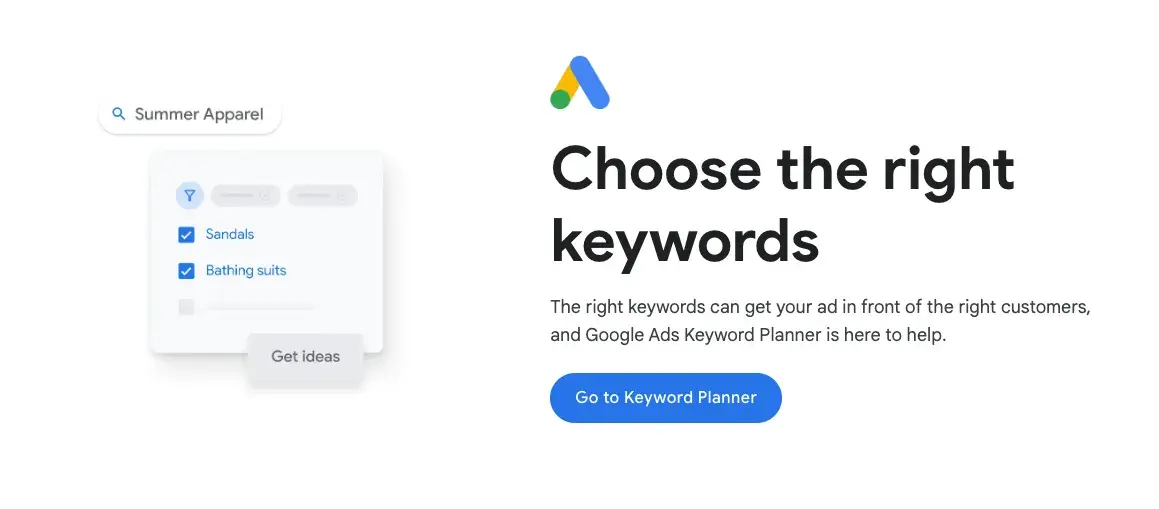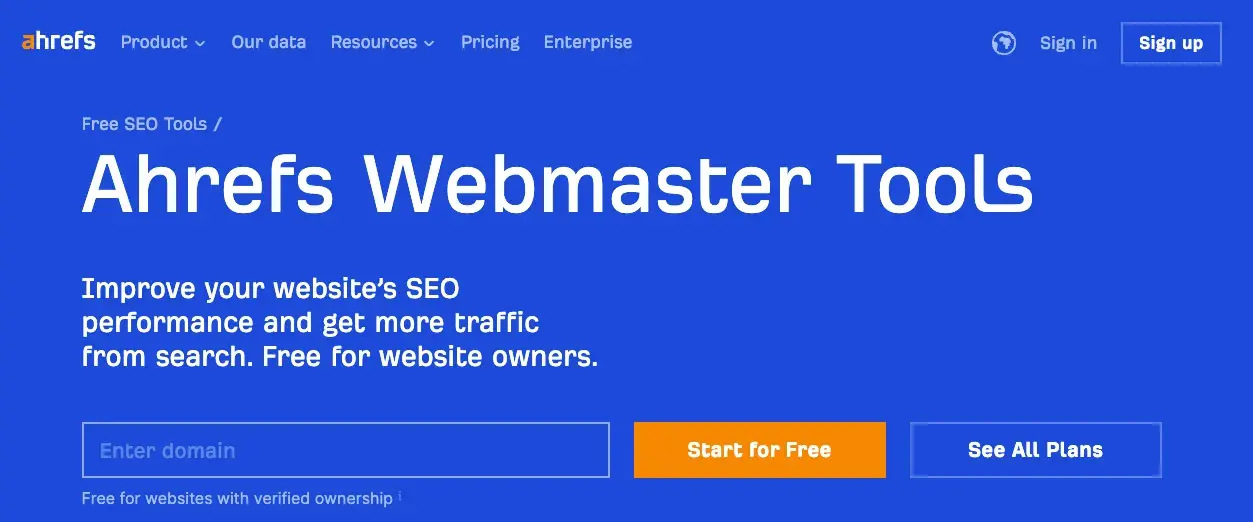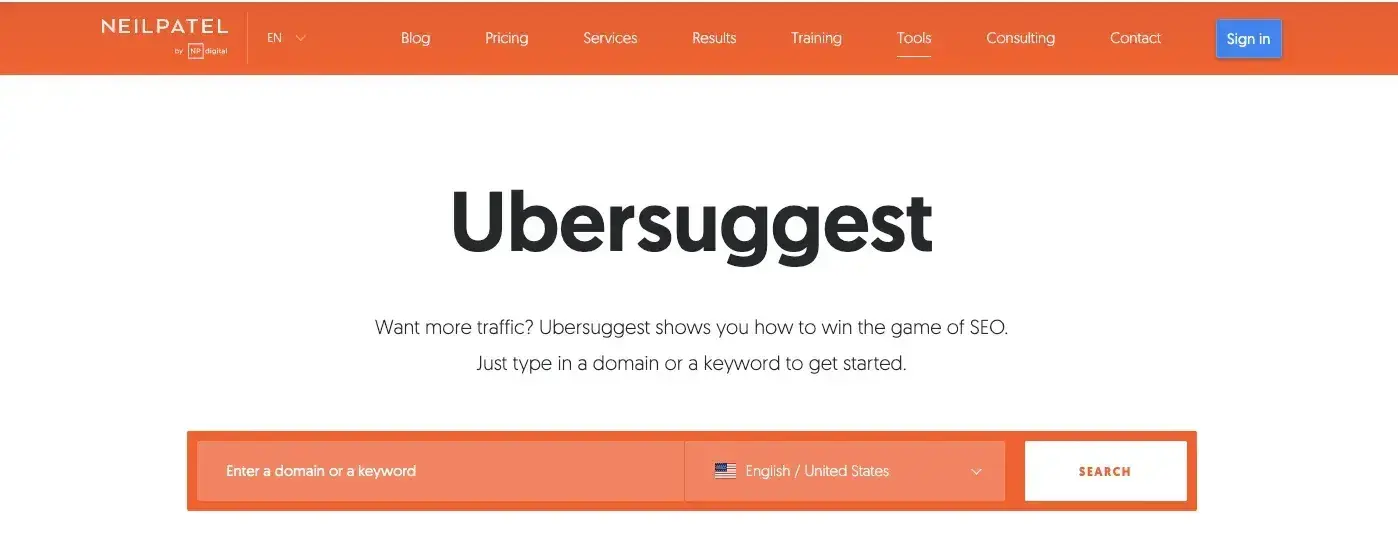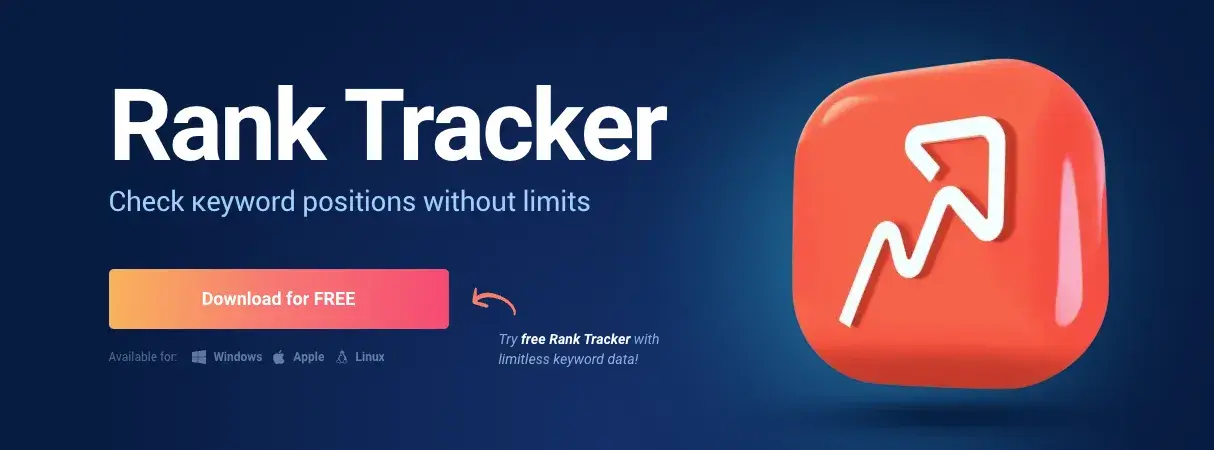If you’re serious about growing your online presence, keyword research is one of the most powerful tools you can use. It’s not just about choosing random words — it’s about understanding your audience, their search behavior, and how you can position your content to meet their needs.

In this blog, we’ll explore how to do keyword research for SEO step-by-step, along with recommended tools and strategies to get real results.
What is Keyword Research?
Keyword research is the process of finding and analyzing search terms that people enter into search engines. These insights help you create content that meets your audience’s needs and ranks better in search results. In search engine optimization (SEO), keyword research is one of the most crucial steps because it determines how easily your content is discovered through search engine results.
Keyword suggestions usually stem from a primary keyword. For example, if your keyword is “SEO tools,” you might also get suggestions like “best SEO tools for beginners” or “free SEO tools.”
It’s important to understand that every search term has intent behind it. Whether someone is looking for information, making a purchase decision, or comparing tools — each keyword gives you clues about what they need.
SEO Basics: Keyword Research as a Foundation
When we talk about SEO basics, keyword research sits at the foundation. Before you even write a blog or build a landing page, identifying a relevant keyword is step one. This ensures your content is discoverable and aligned with what people are actually looking for.
You should build a keyword list with both broad and specific keywords. A specific keyword (sometimes called a long-tail keyword) like “best local SEO tools for small businesses” might bring less traffic, but it will attract a highly targeted audience ready to engage or convert.
When Do You Need Keyword Research?
Keyword research is vital for various aspects of your digital marketing strategy, including SEO, content creation, and paid campaigns.
1. For SEO: Improve Organic Rankings
Keyword research helps you find the right SEO keywords to target, ensuring your content matches what users search for. This improves your rankings on search engines like Google and drives more relevant organic traffic. Without it, your SEO efforts may target irrelevant or overly competitive keywords, limiting your visibility.
2. To Fuel Your Content Strategy: Create Relevant Content
By understanding which keywords and topics your audience is searching for, keyword research guides your content creation. It helps you develop blog posts and pages that answer user questions and solve problems, boosting engagement and conversions. Tools like Google Trends and Moz Keyword Explorer keep your content aligned with real search demand.
3. For Paid Campaigns: Optimize Ad Spend
Keyword research is crucial for paid ads to identify high-intent, cost-effective keywords. It helps you focus your budget on terms that bring qualified leads, increasing ROI. Platforms like Google Keyword Planner provide data on competition and cost-per-click, enabling smarter bid strategies and better-targeted ads.
Why is Keyword Research Important?
-
- Understand Marketing Trends Keyword research shows you what’s trending and what people are searching for right now. This helps you create content that’s timely and relevant.
- Drive Targeted Traffic Using the right keywords ensures that your content reaches the right people. This leads to higher rankings, lower bounce rates, and more conversions.
- Improve Customer Acquisition Not all traffic is good traffic. Effective keyword targeting ensures that you’re reaching people who are more likely to convert.
- Understand User Intent Keywords help you decode what users want. Are they looking for information, comparing products, or ready to buy?
- Keyword analysis also lets you evaluate how competitive a keyword is and how well your competitors are ranking for it. Tools like Google Analytics help you track performance and fine-tune your strategy.
- Monitoring keyword ranking and analyzing your pages’ visibility in the search engine results helps you stay ahead of your competition.
Read this smart guide for small business owners to see why SEO is still a powerful investment.
Expert Insight
“Keyword research is the compass of your content strategy. Without it, you’re sailing blind in the vast ocean of online competition.” — Rand Fishkin, Co-founder of Moz & SparkToro
Key Elements of Keyword Research
- Relevance Google ranks content that matches search intent. Your content should answer the searcher’s question or solve their problem.
- Authority Google favors authoritative sources. Build your authority by creating helpful, informative content and earning backlinks.
- Search Volume (MSV) If no one is searching for a keyword, you won’t get traffic from it. Look for keywords with a good balance of search volume and competition.
Learn why NLP optimization is now essential for SEO success and how to create content that aligns with how Google understands language.
How Google Tools Help with Keyword Research
- Google Search is where it all begins. By simply typing your topic, you get keyword ideas and an understanding of what search terms users are entering.
- Google Trends helps you compare keyword popularity over time and by region. It’s a great tool for spotting seasonal trends or emerging topics.
- Google Search Console is essential for checking how your site is performing. It shows what keywords you already rank for and which pages are getting impressions.
- Google Suggest (autocomplete) is an instant way to uncover keyword variations as you type a query.
- Google Keyword Planner helps you find keyword data like search volume, competition, and keyword ideas
Steps to Do Keyword Research
Step 1: Create Topic Buckets
Start by identifying broad topics relevant to your business. For example, if you run an SEO agency, your buckets might include:
- On-page SEO
- Technical SEO
- Content Marketing
- Local SEO
Step 2: Fill Buckets with Keywords
Think of keyword phrases your audience might search. For example:
- What is technical SEO?
- Best tools for on-page SEO
- SEO content strategy tips
Use brainstorming, analytics, and team insights to generate a list.
Step 3: Understand Intent
A keyword can have multiple meanings. Always analyze the intent behind the keyword before targeting it. Search it on Google and look at the top results to understand what users are really looking for.
Step 4: Explore Related Search Terms
Use Google’s “related searches” at the bottom of the SERP to find more keyword ideas. Type your keyword and scroll to the bottom for suggestions.
Step 5: Use Keyword Research Tools
Leverage tools to get keyword data, competition level, and search volume. Here are some of the best keyword research tools:
Looking for free SEO tools that are perfect for beginners? Check out this list of the top 10 free SEO tools for small businesses to supercharge your strategy.
- Ahrefs Webmaster Tools – One of the most highly regarded SEO tools out there, and it offers a free basic level.
Source: https://ahrefs.com/blog/keyword-research/
- SE Ranking – A comprehensive SEO research tool with lots of valuable data.
- SEMrush Keyword Magic Tool – One of the most comprehensive SEO companies on the market with a valuable SEO research tool.
- Ubersuggest – Featuring up to three free searches a day and AI-enabled recommendations.
New to keyword research? Follow our complete beginner’s guide to keyword research with step-by-step tips.
- Free Keyword Research Tool (Neil Patel) – RyRob’s easy-to-use keyword research tool provides keyword and keyword cluster topics.
- Google Keyword Planner – Google’s free tools allow you to search for keyword ideas based on the keyword or your website.
- Keywords Everywhere – A low-cost option that sits on top of your website searches and provides valuable SEO information.
- KeywordTool.io – Uses Google autocomplete to identify new keyword ideas.
- KWFinder – A free, easy-to-use SEO research tool that helps you find top keywords.
- SearchVolume.io – Helpful for finding monthly search volume to help prioritize specific keywords.
- Rank Tracker – A solid tool for monitoring SERP data by ranking relevant keywords, identifying keyword gaps, and autocompleting phrases on different search engine tools.
- Moz Keyword Explorer – A powerful tool for keyword analysis and competition research.
- Keyword Explorer (Ahrefs) – Excellent for exploring variations, intent, and keyword difficulty.
- Keyword Tool – Another great option to find long-tail keyword suggestions.
Step 6: Analyze Competitors
Check what keywords your competitors are ranking for. Use those insights to improve your strategy. Don’t copy blindly — adapt based on your niche and audience.
Pro Tips
- Target a mix of short-tail (e.g., “SEO”) and long-tail (e.g., “best SEO tools for beginners”) keywords.
- Look for low-competition, high-intent keywords.
- Use data, not guesses.
How to Choose the Right Keyword
When selecting keywords, consider:
-
- Search Volume & Competition: High search volume is great, but it often comes with high competition. Look for keywords with a healthy balance.
- Keyword Variation: Don’t just target one term — use variations that match user behavior.
- Monthly Searches: Tools like SearchVolume.io help you find the average monthly searches to prioritize effort.
- Particular Keyword Relevance: Make sure the keyword matches your content and offers true value to your reader.
Understanding Keywords and Their Search Volumes
A keyword is the exact word or phrase people type into search engines. Keywords can be short and broad, like “SEO,” or long and specific, like “best free keyword research tool for beginners.”
Search volume shows how many times a keyword is searched each month. High search volume means more potential traffic, but usually also more competition. For example, “SEO” might have thousands of monthly searches, while a more specific phrase like “how to do keyword research free” might have fewer but more targeted searches.
What Affects Search Volume?
- Seasonality: Some keywords trend during certain times, like “Black Friday deals” in November.
- Location: Search popularity varies by country or region.
- Trends: Popular topics can cause spikes in keyword searches.
- Variations: People use different phrases for the same thing, so including variations helps capture more traffic.
- Search Intent: Keywords reflect whether people want information, comparisons, or to buy something.
Explore how AI is revolutionizing SEO and discover tools that help you rank faster and smarter.
Using tools like Google Keyword Planner, Google Trends, and Ahrefs can help you find monthly search volumes and discover valuable keyword variations to target.
FAQ:
❓ How do I find my SEO keywords?
To find your SEO keywords, start by analyzing what keywords your website already ranks for using Google Search Console. This free tool shows you the search queries that bring visitors to your site, helping identify which keywords you currently rank for and where you can improve. Next, use keyword research tools like Google Keyword Planner or Moz Keyword Explorer to expand your list with related search terms. These tools provide data on search volume, competition, and user intent, helping you find relevant keywords your target audience actively searches for. Combining this data with your niche knowledge allows you to build a targeted keyword list that aligns with your content goals.
❓ Which SEO tool is best for keyword research?
The best SEO tool depends on your needs and budget, but some industry leaders include Ahrefs, SEMrush, Moz Keyword Explorer, and Ubersuggest.
- Ahrefs offers in-depth keyword difficulty scores, competitor keyword analysis, and extensive keyword databases.
- SEMrush provides comprehensive keyword magic tools and paid ad data alongside SEO metrics.
- Moz Keyword Explorer is beginner-friendly and offers keyword suggestions with priority scores.
- Ubersuggest combines keyword suggestions with content ideas and SEO audits.
Each tool offers unique features such as keyword difficulty scoring, search volume data, and SERP analysis, making them powerful for optimizing your SEO strategy.
❓ How to do keyword research for SEO free?
You can do effective keyword research without spending money by leveraging several free tools:
- Google Search: Use the search bar to explore autocomplete suggestions (Google Suggest) that reveal popular search queries.
- Google Trends: Analyze keyword popularity over time and across regions to identify trending topics.
- Google Keyword Planner: Accessible through Google Ads, it offers search volume and competition data for keywords.
- Ubersuggest (Free Tier): Provides keyword suggestions, SEO difficulty, and content ideas with limited daily searches.
By combining these tools, you can discover valuable keywords, understand user intent, and identify low-competition opportunities—all without a budget.
❓ What is a free keyword analysis tool?
A free keyword analysis tool helps you evaluate keywords based on search volume, difficulty, and relevance without paying. Some popular options include:
- Ubersuggest: Offers detailed keyword metrics, including search volume, SEO difficulty, and CPC data.
- Google Keyword Planner: Shows search volume trends and competition levels, ideal for both SEO and paid campaigns.
- Keywords Everywhere (Basic Version): A browser extension that displays keyword metrics directly on Google search results pages.
- Moz Keyword Explorer (Free Version): Allows limited monthly keyword queries and provides keyword difficulty and opportunity scores.
These tools are essential for understanding which keywords are worth targeting in your SEO efforts.
❓ What is a keyword position checker tool?
A keyword position checker tool tracks your website’s ranking position for specific keywords on search engines like Google. Examples include Rank Tracker, Ahrefs, and SEMrush. These tools monitor your keyword rankings over time, helping you measure SEO performance and identify which pages are improving or declining in the search results. They also allow you to compare your rankings against competitors and find keyword gaps you can target to boost traffic. Using such tools regularly ensures your SEO strategy remains effective and adaptable to changes in search engine algorithms.
❓ What is Google Keyword Tool?
The Google Keyword Tool, now known as Google Keyword Planner, is part of Google Ads and helps marketers find relevant keyword ideas based on search volume, competition, and estimated cost-per-click (CPC). While primarily designed for advertisers running pay-per-click (PPC) campaigns, it’s also invaluable for SEO keyword research. It allows users to:
- Discover new keywords related to their business or website.
- Understand how competitive keywords are in paid search.
- Estimate monthly search volumes for better prioritization.
Group keywords into ad groups or themes for better campaign structure.
Using Google Keyword Planner can guide both organic and paid strategies, helping you select keywords that drive relevant traffic at the right cost.
Final Thoughts
Keyword research is not just a one-time task — it’s an ongoing process. By continuously refining your keyword strategy and creating content that aligns with user intent, you’ll drive more organic traffic and increase conversions.
Start small, stay consistent, and keep analyzing. If done right, keyword research can become one of the most valuable investments for your SEO success.
👉 Need help with keyword research and SEO strategy? Best Pro SEO Agency’s expert team is ready to help you grow. Let’s talk!







